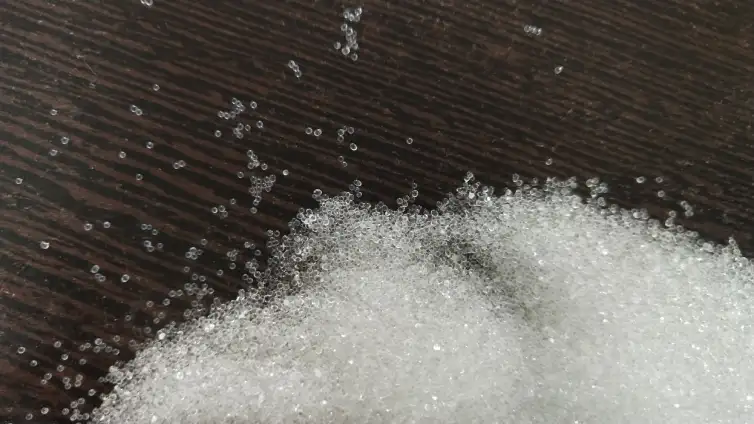Products

*Price Range - Rs 10-100 per/kg
4.0 Star Rating by our Precious Clients



Glass Beads 0.11-0.05mm Abrasives are used in the surface polishing method. The sand blasting material (sand, glass beads, and steel corundum) is sprayed onto the component using compressed air. Blasting is used to clean glass beads, remove rust, deburr, descale, and remove previous coatings. Blasting can be used to increase a surface's polish or as a pre-treatment for subsequent coatings. The high pressure of the shot blasting substance roughens the surface of the component, which promotes the adhesion of the subsequent coating. Using glass beads and a grit blasting equipment, it is possible to work on pieces without deforming them.
Although lead is not typically found in Glass Bead Size A, it can be discovered in glass beads or components with specific finishes. Glass beads are manufactured from a thick, viscous liquid composed of silica and other minerals that has been melted at a high temperature. The liquid is sculpted into the appropriate shape when it solidifies. Glass beads are available in a variety of sizes and forms. Molten glass is frequently wrapped around a long iron grit to make beads.
Glass Bead 0.11-0.05mm price in India is heavily depending on the composition material it offers, such as Glass beads 0.11-0.05mm with certain functioning standards, which has a high costing according to Indian makers. Blasting with Glass beads 0.11-0.05mm makes surface finishing, coating, and removal much easier. Glass beads 0.11-0.05mm are commonly utilized in a variety of industries, including water jet cutting, which uses a thermal spray cannon. Glass beads 0.11-0.05mm have numerous applications in the marine industry. Glass Bead Size AD have a broad performance requirement, according to performance factor.
We are the best manufacturer and the supplier of glass beads of all shapes and sizes in India, it supplies glass beads in Rajasthan and all over India like Jodhpur, Jaipur, Ahmedabad, Pune, Gurgaon, Delhi, Faridabad, etc. We manufacture and supply glass bead for shot peening, glass bead for road marking, glass bead for bead blasting, glass bead size 2mm, 3mm, 4mm, 6mm, A, B, C, AD, AB, AF, AQ, AF, AC, BL, AH, AI and many more.
The study looked at the effects of loading speed and particle size in the form of glass beads 0.11-0.05mm on the behaviour of a composite material and how it was applied in a structural adhesive bond.
When both fillers are added, the composite material's tensile strength drops by about 60%, according to the testing results. This composite material performed admirably as an adhesive at adhesive bonding.
The findings of the experiment showed that adding a spherical particle filler – glass bead 0.11-0.05mm – to the adhesive binding strength had a favourable effect. The glass bead abrasive bond strength of the filler glass beads makers in India was raised by 14%.
Adding the filler to the resin, on the other hand, revealed that the filler neutralised the effect of different loading speeds. The fracture surface changed after the filler was added to the resin. The filler, resin, and adhesive-bonded material all had high wettability, according to a scanning electron microscope (SEM) examination.
The crack propagation was focused around the filler, specifically at a greater loading speed. As a result of this, fracture propagation occurs. Higher particles show up in a negative way, notably at the fracture surface's beginning.
Before being incorporated into thermoset polymers as fillers or tougheners, inorganic particles are regularly cleaned with solvents such as alcohols, but the role of the cleaning process has never been investigated.+
Using glass beads filled epoxies as model systems, the effect of the cleaning procedure on the fracture behaviour of particle composites is explored. Cleaning the contact between the glass beads and the epoxy matrix is proven to be a simple way to reinforce it.
Although the cleaning method is unlikely to change the chemistry of the glass bead surface, cleaning with distilled water or ultrasonic vibration removes submicron particles that may reside on the surface.
The elimination of submicron particles improves the interfacial strength of the glass bead manufacturers and the matrix, as well as the composites' tensile strength. The modulus and fracture toughness of the composites, on the other hand, are unaffected by the cleaning process.
